A day of thanks for Uxbridge Nurseries farm and its migrant workers
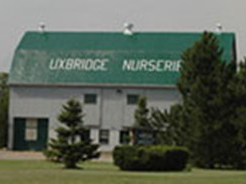
It was a beautiful day on October 17 for a drive to the Uxbridge/Brooklin area to partake at a Thanksgiving lunch for migrant workers, hosted by KAIROS’ Community Partner, Migrant Worker Solidarity Program at ACDR (Aids Committee for Durham Region), one of 15 partners of KAIROS’ Empowering Temporary Foreign Workers during COVID-19 Project.
Our host Cristina Gomez warmly greeted Connie Sorio, Manager of the Empowering Temporary Foreign Workers during Covid-19 Project, and me at the Uxbridge Nurseries farm, and ushered us into a barn type structure that was colourfully decorated in a thanksgiving theme.
It warmed my heart to find out that the workers took it upon themselves to gather posters to hang on the walls to add to the festivity, as well as clean the surroundings, and setup the chairs and tables when they got wind that Cristina was preparing for the event that day. Little did they know that the event was for them!
Indeed, it was a day of gratitude. The workers brought floral arrangements and bouquets for one of the employees who would be retiring soon. The workers’ spokesperson expressed thanks on how their employer and staff have always been there for the workers and took care of them like family. They brought out their guitars, and whole-heartedly serenaded their employers and all in attendance at the luncheon!
Even the community’s SuperStore (Ajax) Manager, Francisco Carballo, brought bags filled with necessities and treats for the workers in appreciation for all the workers’ hard work.
It was such a delight to witness this wonderful interaction and close relationship between employers and migrant workers.
Funded by the Government of Canada’s Temporary Foreign Worker Program, KAIROS’ Empowering Temporary Foreign Workers during COVID-19 Project targets the Maritimes and Ontario and ends on December 15, 2021.
Through the project, KAIROS’ partner organizations have provided tens of thousands of workers with welcome bags that include personal care equipment, language-appropriate resources, and non-perishable food items. Other services include information sessions, webinars, virtual workshops, and emergency assistance. Partners also visit farms and public spaces for outreach and service delivery.

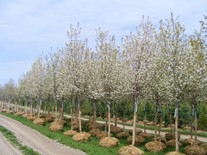
Uxbridge Nurseries 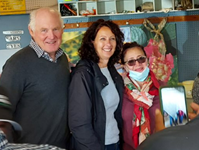
Harry Worsley (President of Uxbridge Nurseries Inc.), Wilma Muhic (staff), and Cristina Gomez (Community Partner, Migrant Worker Solidarity Program at ACDR) 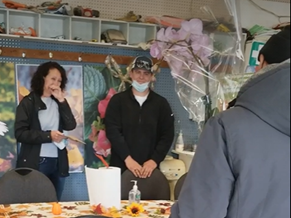
A tribute of floral arrangements & bouquet from migrant workers… 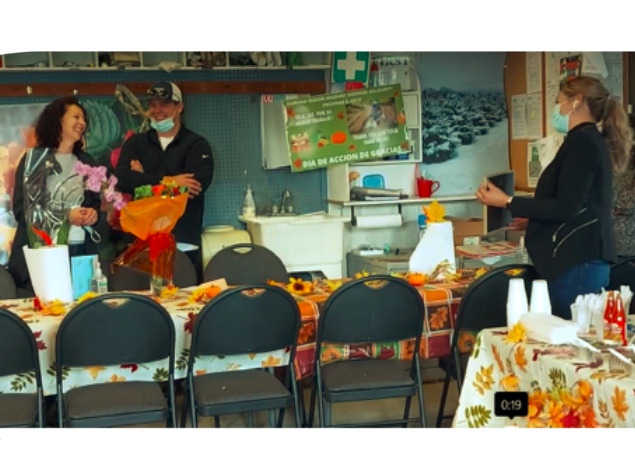
…and a plaque of appreciation from Community Partners to retiring employee Wilma Muhic. 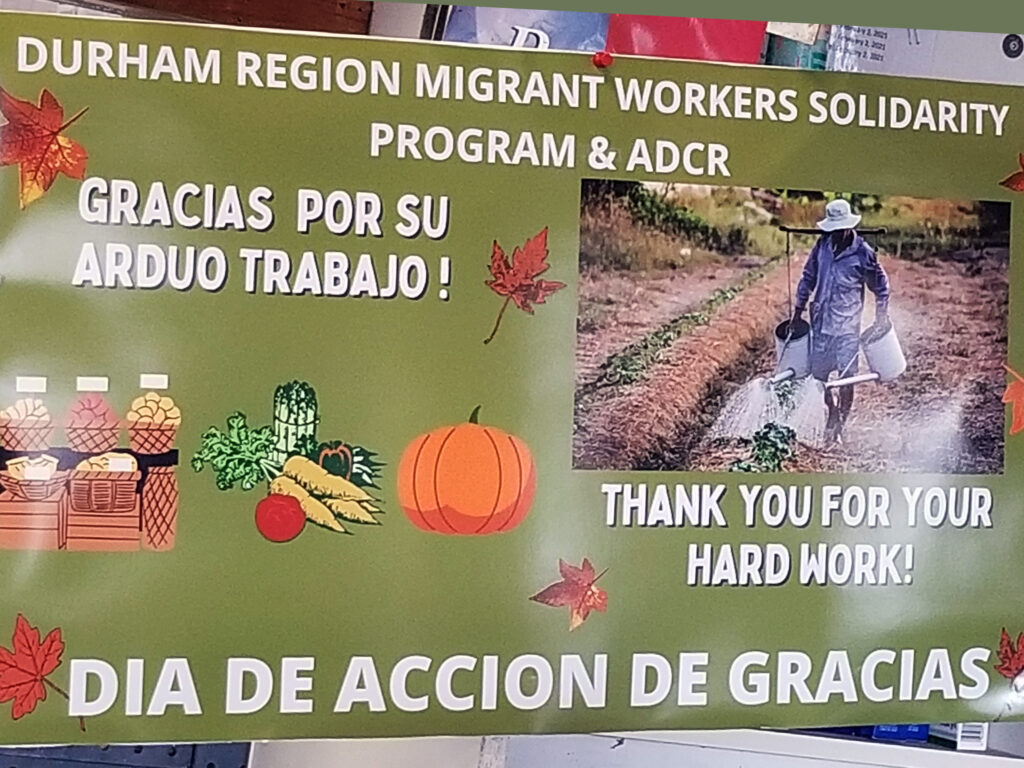
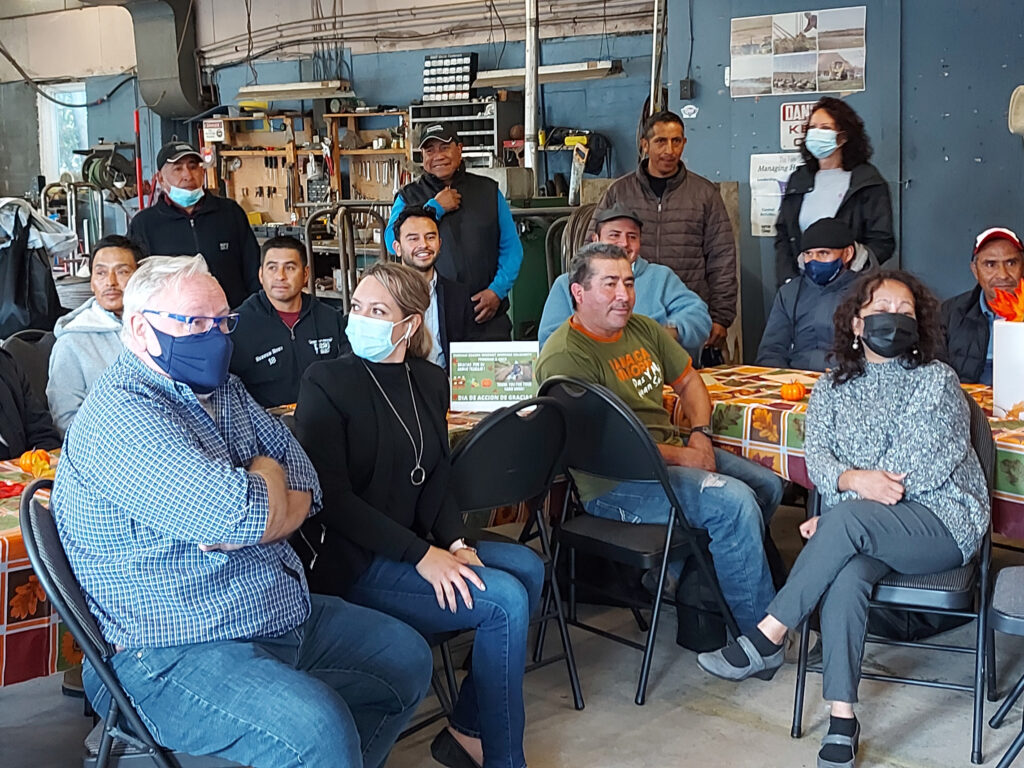
Front left to right: Adrian Betts (MWSP at ACDR Community Partner Director), Elisabe Espinosa (MWSP at ACDR Community Partner Staff member), and Connie Sorio (KAIROS’ ETFW Project Manager) 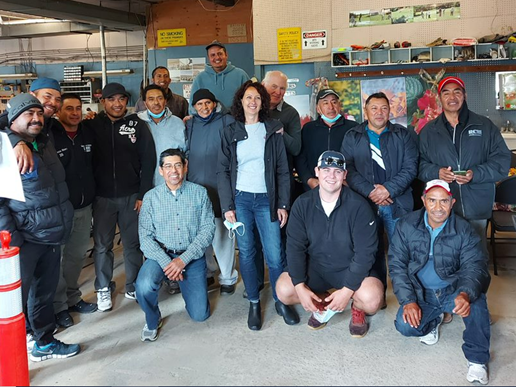
Workers of Uxbridge Nurseries farm gather for this group photo. Those who are unmasked belong to the same bubble. 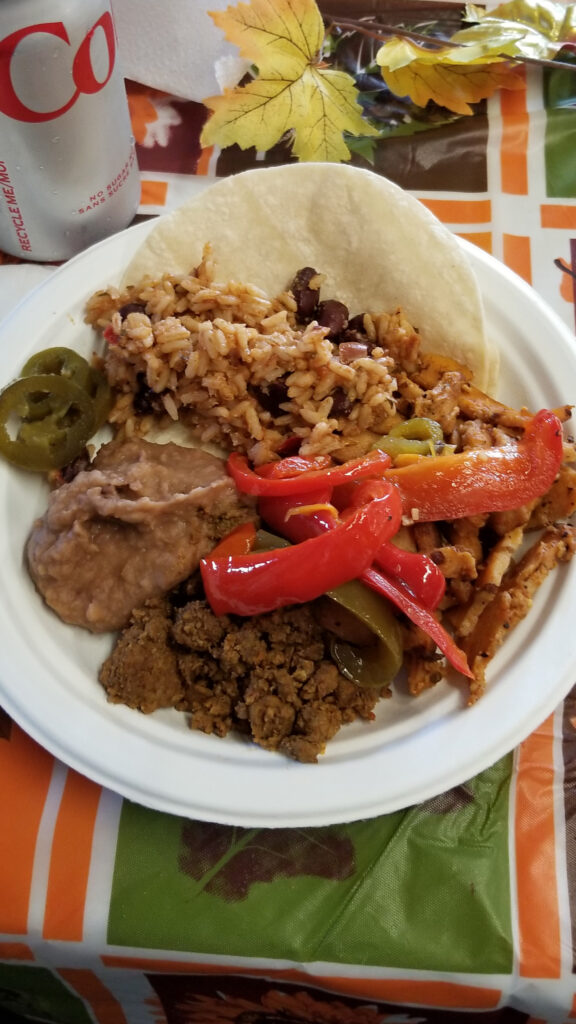
A Mexican thanksgiving lunch! 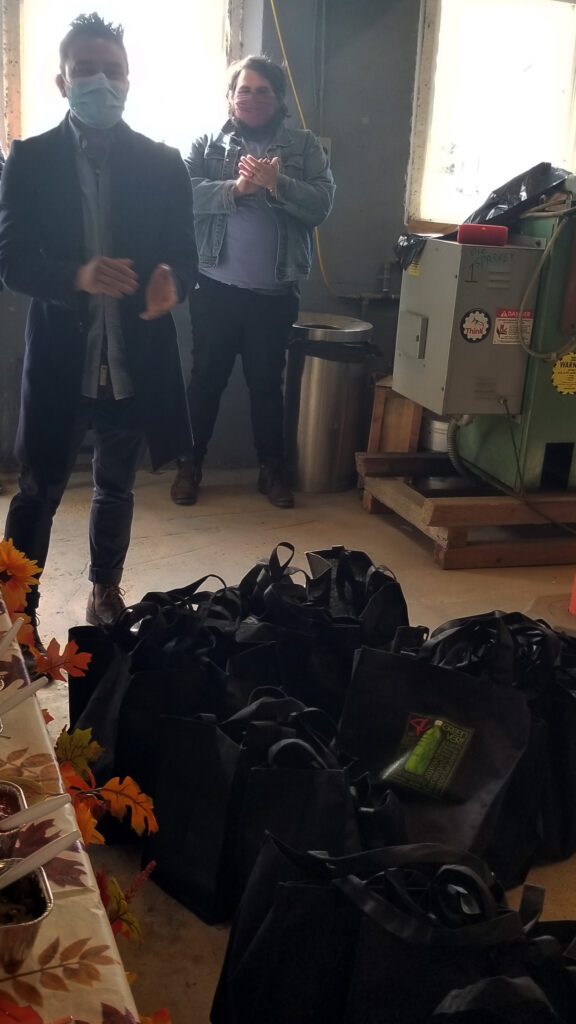
Appreciation bags for migrant workers from SuperStore’s Manager in Ajax, Francisco Carballo
By Mitos Caballes, who is the finance and administration coordinator for the Empowering Temporary Foreign Workers During CODID-19 project.








